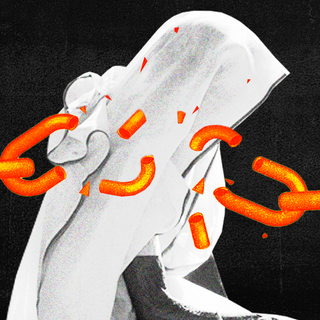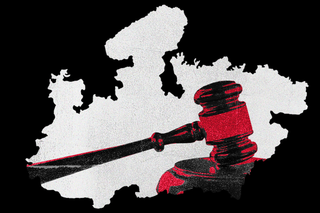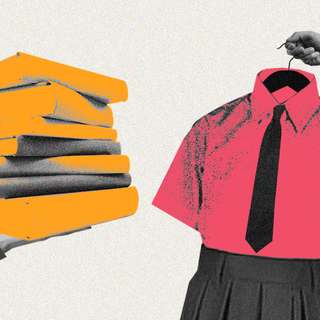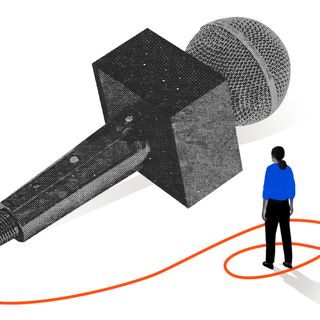
SC Criticizes Madhya Pradesh’s Policy of Rewarding Prosecutors for Securing Death Penalties
The Supreme Court criticized the state’s policy to judge the “star prosecutor of the month” based on their ability to secure death sentences.

The Madhya Pradesh government drew censure from the Supreme Court of India on Tuesday over its thorny practices. The state government was found to be offering incentives to public prosecutors for successfully arguing death penalty cases. In other words, the greater the number of death row convicts a prosecutor was able to secure, the better their professional outlook would be.
The said “scheme” has been in place since 2018. Think of it as a “reward system” that exists to encourage prosecutors, who are incentivized with tags like “Best Prosecutor of the Month” or “Pride of Prosecution.” Saurav Datta, a lawyer, had earlier written in The Wire that it the end goal is “to ensure speedy trials and quick convictions — 1,000 points for a death sentence, 500 for a life-term, 100-200 points for maximum punishment in lower courts.” There is also a penalty — in the form of a strict warning — to those who get less than 500 points in a month.
“[The policy] militates against all principles of prosecutorial independence and drives a cruel blow to the criminal justice system…,” Datta had commented. “This is an ill-conceived and dangerous move, which unless thwarted at the earliest, could seriously jeopardize access to justice and justice itself.” Yet, the policy appears to gave continued to exist well into 2022, four years since Datta’s condemnation of it.
The policy of the Madhya Pradesh government appears to be one that can severely jeopardize the due process of law — especially since it serves to benefit the careers of prosecutors at the cost of another’s life.
Related on The Swaddle:
We Need to Stop Confusing Punishment With Justice
“A rewards system should focus on [the] performance of the prosecutors in securing a conviction and not on the quantum of punishment sought. Incentivizing death sentences and life sentences sends the wrong message to prosecutors that a higher punishment is always better. It further risks them seeking maximum punishment for private gain,” a legal researcher with experience in the U.N. as well as the criminal justice system in India, had told Datta on the condition of anonymity, adding, “This is not only dangerous for individual defendants but also harms the integrity of the criminal justice system on the whole.”
The apex court was apprised of the scheme recently while it was hearing a suo motu writ petition — one where courts take issues on their own, without being approached by aggrieved parties. The petition was aimed at scrutinizing — and subsequently, institutionalizing — the process of mitigating death penalties in India. In pursuance of the matter, the amicus curiae, or “friend of the court,” Mr. K. Parameshwar brought Madhya Pradesh’s policy to the attention of the bench comprising Justices U.U. Lalit, S. Ravindra Bhat, and Sudhanshu Dhulia. Reportedly, it was an application filed by “Project 39A,” an initiative by the National Law University, Delhi, that highlighted the need to investigate such mitigating factors.
Objections to the policy aren’t misplaced. First, of course, the death penalty is a violation of the most fundamental human right — the right to life. “The weight of the death penalty is disproportionally carried by those with less advantaged socio-economic backgrounds or belonging to a racial, ethnic, or religious minority. This includes having limited access to legal representation, for example, or being at [a] greater disadvantage in their experience of the criminal justice system,” states Amnesty International.
Second, criminologists have cried themselves hoarse trying to argue that the death penalty is not an effective deterrent to crime. The policy in idealizing death row as a way of criminal justice paints a false and deleterious picture.
Related on The Swaddle:
Death Penalty for Child Sexual Abusers Is Not a Good Idea
Third, and the most worrying point of them all, death row is a punishment that once executed, cannot be undone. The prosecutors are racing to earn the maximum number of points and get a badge of honor; but this may compromise the case and the individual at the heart of it. Given that the apex court has admitted to wrongly sentencing 15 people to death in 15 years, this is an alarming prospect.
Moreover, the fact remains that “India aggressively imposes death sentences [though it] hardly ever executes anyone,” as an article in The New York Times reads. According to a 2016 report it cited, only four people were executed between 2000 and 2014 even though 1,810 death sentences were issued during the period. That means that while a death row judgment may earn the prosecutor points, the convicted individual will languish physically and mentally in India’s overburdened jails — possibly for years.
In the meantime, the convicts on death row — like countless others — spent their days in “the prolonged uncertainty,” which naturally has “a profound psychological effect.” A report from 2021 by Project 39A, which evaluated the mental health of 82 prisoners on death row, found 51 suffered from, at least, one mental health disorder, and as many as 63 reported dealing with suicidal thoughts. One individual had even described himself as “a cemetery… a walking dead body.”
Devrupa Rakshit is an Associate Editor at The Swaddle. She is a lawyer by education, a poet by accident, a painter by shaukh, and autistic by birth. You can find her on Instagram @devruparakshit.
Related


Private Schools in Delhi Can No Longer Force Students To Buy Expensive Books, Uniforms
